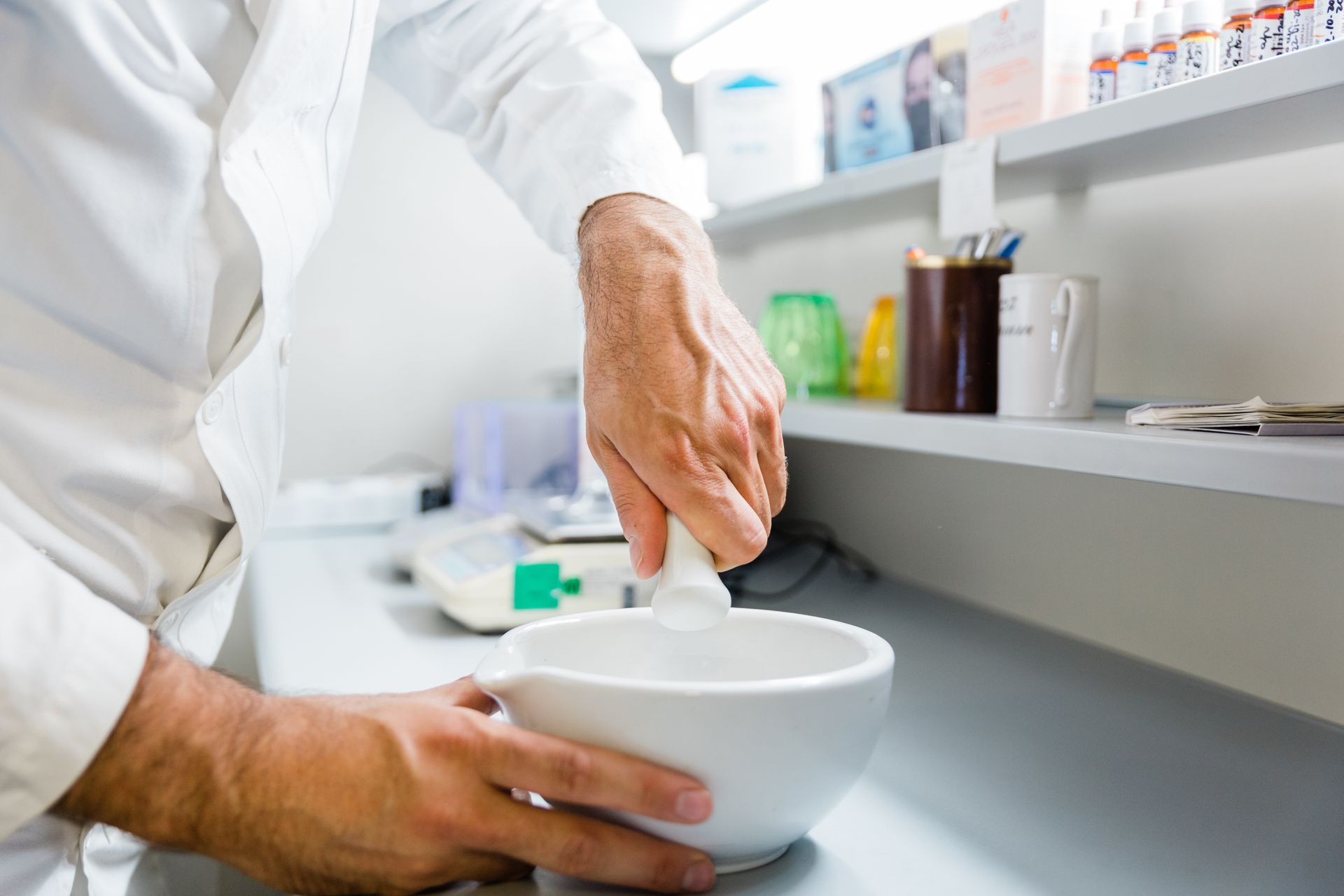What Are Compounding Medications?

In the vast realm of pharmaceuticals, compounding medications stand out as a unique and personalized approach to medicine. Compounding is the art and science of preparing personalized medications for patients. This practice allows pharmacists to create custom drugs that aren't commercially available or to provide an alternative method of intake.
The History of Compounding
People prescribed medications back in the 19th or early 20th century often received compounded medications prepared by a chemist or pharmacist. These medications were often customized based on the perceived needs of the patient. The advent of mass drug manufacturing decreased the need for compounded drugs, but there are still scenarios in which your doctor might recommend you receive custom compounded medications.
Why Would Compounded Medications Be Prescribed?
While compounding may seem antiquated, there is still a robust need for this unique approach to pharmaceutical preparation. It’s particularly important for patients with allergies to ingredients present in certain medications or those who require unique dosage or medication delivery methods.
- Allergies: Your doctor may recommend compounded medication if you’re allergic to a particular ingredient typically found in a medication.
- Dosage: Some patients may need custom doses tailored to their age, weight or sensitivities.
- Delivery Method: Changing a pill into a liquid or creating a topical version of a medication may be necessary for patients with limitations that prevent them from taking the medication via the normal delivery method.
- Flavoring: Some patients, especially children, may require medications that are more palatable.
Medications for specific ailments may be more likely to be compounded, like customized bio-identical hormone replacement therapies, dermatology treatments like topical medications, as well as pediatric or geriatric medications.
The Compounding Process
A skilled pharmacist, using specialized equipment, performs medication compounding. They begin by consulting the prescriber and understanding the patient's needs. Ingredients are then measured, mixed and processed to produce the final medication.
Types of Compounded Medication Delivery Methods
- Topical Gels and Creams: For local application, especially beneficial in pain management.
- Oral Liquids: Useful for those who have difficulty swallowing pills.
- Suppositories: Useful for patients who can't take oral medications.
- Flavored Meds: Often used for pediatric applications.
Quality and Safety for Compounded Medications
It's crucial to get compounded medications from reputable sources. The United States Pharmacopeia (USP) sets the standards for quality and purity in compounded medications. Accredited compounding pharmacies adhere to these strict guidelines, ensuring safety and efficacy. The experts at St. Hope Pharmacy locations are committed to upholding the highest standards of compounding quality.
The Benefits of Compounding
- Personalization: Tailored treatments for individual patient needs.
- Flexibility: Alternative dosage forms and strengths.
- Access: Availability of medications that are discontinued or not commercially available.
- Collaboration: Enhanced patient, pharmacist and physician collaboration.
Potential Limitations
Compounding isn’t necessarily the best choice for every patient. It’s normally only recommended in specific sets of circumstances where a normal pharmaceutical medication isn’t available to meet a patient’s needs. Some of the potential complications patients may run into when seeking compounded medications include:
- Higher Costs: Compounded drugs can sometimes be more expensive.
- Insurance Issues: Not all insurance providers cover compounded medications.
- Availability: Not all pharmacies offer compounding services.
Modern Trends in Compounding
Advanced techniques and enhanced technology has greatly increased the sophistication of modern compounding compared to the capabilities available centuries past. The use of computer-controlled devices ensures precise dosages while advanced techniques like liposomal drug delivery enhance the effectiveness of certain medications.
Who Can Benefit From Compounded Medications?
Any patients who aren’t adequately served by currently available mass-produced pharmaceuticals can potentially benefit from compounded medications. Whether it's a child who can't swallow a pill, an elderly patient requiring a specific dosage of a drug or someone needing a medication that's no longer commercially produced, compounding serves a diverse range of needs.
St. Hope Can Fill Your Compounding Pharmacy Needs in Houston
If you or someone you know requires compounded medication, it's essential to find a trusted compounding pharmacy. The team at St. Hope Pharmacy are proud to offer competent, highly effective compounding services to patients throughout Houston. We encourage you to contact one of our pharmacies to learn how we can help you.


